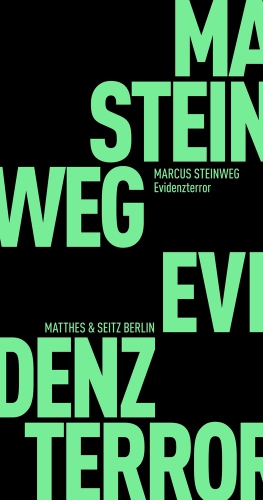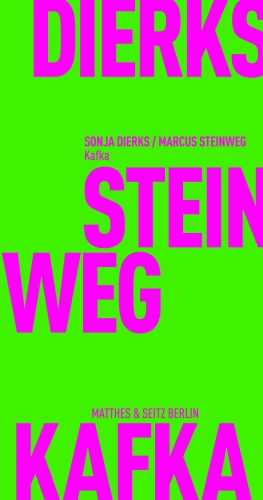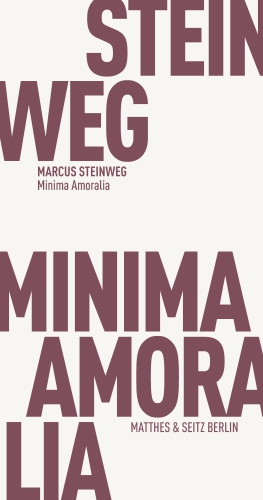The Terror of Evidence offers meditations, maxims, aphorisms, notes, and comments—191 texts ranging in length from three words to three pages—the deceptive simplicity of which challenges the reader to think. “Thinking means getting lost again and again,” Steinweg observes. Reality is the ever-broken promise of consistency; “the terror of evidence” arises from the inconsistency before our eyes. Thinking is a means of coping with that inconsistency. The subjects of these short texts vary widely. (“The table of contents is in itself excessive and ambitious,” writes Hirschhorn.) They include pathos, passivity, genius, resentment, love, horror, catastrophe, and racism. And club sandwiches (specifically, Foucault's love for this American specialty), blow jobs, and dance. Also: “Two Kinds of Obscurantism,” “Putting Words in Spinoza's Mouth,” “Note on Rorty,” and “Doubting Doubt.” The Terror of Evidence can be considered a guidebook to thinking: the daily journey of exploration, the incessant questioning of reality that Steinweg sees as the task of philosophy.
Sample translation
English translation available
Marcus Steinweg, an author and philosopher based in Berlin, teaches at the University of the Arts in Berlin and is the coeditor of the journal Inaesthetics. Much of his work treats the intersections of philosophy and art.
By the same author(s)
"Steinweg: what a fitting name! It means both 'stone road,' which is to say hard and resistant (locus lapidibus stratus), and a road strewn with individual stones (strada lastricata), discontinuous reference points. The trail of breadcrumbs which allows him to find his way back. You can start from anywhere and you'll always get to where you need to be." - Jean-Luc Nancy









